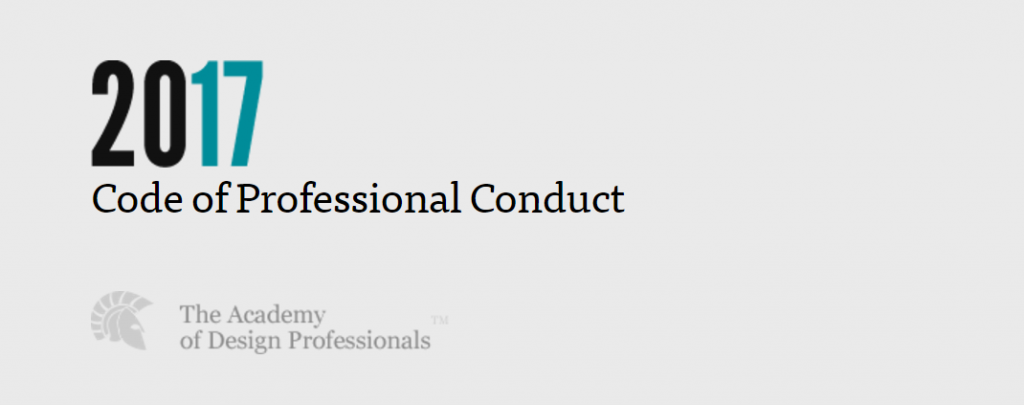What About Ethics in Design?

Ethics and design should be looked at in context. Despite many claims to do so, this actually happens rarely.
Looking at the G20 riots, each of us has an opinion right away. "They're to blame." "No, them." "You can't do something like that." "Yes, just like that." Trump tweets out odd sentence fragments. We have an opinion on that.
But where are all of these ethical thoughts when we're sitting in front of our design projects? Who creates services like Tellonym or Uber? Who thinks about Facebook's strange abilities? Right now, in design, it seems like anything that's possible from a technological standpoint is just fine and can be done.
On our customer's website, we also present them as if they were top notch entrepreneurs worthy of gaining tons of customers. You do that even if you know that your client works with mini jobbers 80 percent of the time, and also pays his employees poorly and not in time.
After all, your customer is king and always right. In that regard, us designers are a part of the phenomenon of self-censorship. We've done that for so long that we don't even realize it anymore. Instead, all of this is normal, everyone does it, and nobody does it differently.
Maybe we should remember good old ethics. That could surely open our eyes. Regarding our profession, we need to look into the following dimension of ethics.
 For example, designers are obliged to strive for progression. They are supposed to keep pushing up the standards while improving the entire branch, rather than the individual design. This includes publicly sharing your knowledge and abilities. Of course, they are supposed to make sure to observe the human rights.
When it comes to the basics of dealing with the public, commonplaces come into play. For instance, designers should always stick to the law, and act in a way that makes the potentially positive effects of design on the civil society transparent to the public.
Dealing with customers, designers should be loyal and honest, and explicitly voice any conflicts of interest. Contracts should be concluded in a way that they correctly mirror the extent of the project, while including regulations for all significant actions.
Towards their colleagues, designers should be fair and honest as well. Free work shouldn't be provided. Employees should be paid appropriately and supported in their further development.
In between all of that, there are rules saying that designers shouldn't take part in deceitful projects, take false credit, or speak badly of their colleagues.
Don't get me wrong. This code of conduct is definitely better than not having one at all. In the end, it only contains things you could find in the code of conduct for petrol attendants, though.
The massive influence of design on the evolution of our information age is left out entirely.
For example, designers are obliged to strive for progression. They are supposed to keep pushing up the standards while improving the entire branch, rather than the individual design. This includes publicly sharing your knowledge and abilities. Of course, they are supposed to make sure to observe the human rights.
When it comes to the basics of dealing with the public, commonplaces come into play. For instance, designers should always stick to the law, and act in a way that makes the potentially positive effects of design on the civil society transparent to the public.
Dealing with customers, designers should be loyal and honest, and explicitly voice any conflicts of interest. Contracts should be concluded in a way that they correctly mirror the extent of the project, while including regulations for all significant actions.
Towards their colleagues, designers should be fair and honest as well. Free work shouldn't be provided. Employees should be paid appropriately and supported in their further development.
In between all of that, there are rules saying that designers shouldn't take part in deceitful projects, take false credit, or speak badly of their colleagues.
Don't get me wrong. This code of conduct is definitely better than not having one at all. In the end, it only contains things you could find in the code of conduct for petrol attendants, though.
The massive influence of design on the evolution of our information age is left out entirely.
The Formal Aspect of Design Ethics
Similarly to the Hippocratic oath in medicine, designer organizations have looked into creating an ethical guide for their related occupational groups. In contrast to the highly valued Hippocratic oath, the ethical codes of our organizations are barely known and contain nothing more than matters of course. Let's take the "Code of Professional Conduct" of the Academy of Design Professionals, as it's a pretty one. It deals with a pretty good variety of topics. However, the actual focus is on the more formal, easily objectifiable aspects. For example, designers are obliged to strive for progression. They are supposed to keep pushing up the standards while improving the entire branch, rather than the individual design. This includes publicly sharing your knowledge and abilities. Of course, they are supposed to make sure to observe the human rights.
When it comes to the basics of dealing with the public, commonplaces come into play. For instance, designers should always stick to the law, and act in a way that makes the potentially positive effects of design on the civil society transparent to the public.
Dealing with customers, designers should be loyal and honest, and explicitly voice any conflicts of interest. Contracts should be concluded in a way that they correctly mirror the extent of the project, while including regulations for all significant actions.
Towards their colleagues, designers should be fair and honest as well. Free work shouldn't be provided. Employees should be paid appropriately and supported in their further development.
In between all of that, there are rules saying that designers shouldn't take part in deceitful projects, take false credit, or speak badly of their colleagues.
Don't get me wrong. This code of conduct is definitely better than not having one at all. In the end, it only contains things you could find in the code of conduct for petrol attendants, though.
The massive influence of design on the evolution of our information age is left out entirely.
For example, designers are obliged to strive for progression. They are supposed to keep pushing up the standards while improving the entire branch, rather than the individual design. This includes publicly sharing your knowledge and abilities. Of course, they are supposed to make sure to observe the human rights.
When it comes to the basics of dealing with the public, commonplaces come into play. For instance, designers should always stick to the law, and act in a way that makes the potentially positive effects of design on the civil society transparent to the public.
Dealing with customers, designers should be loyal and honest, and explicitly voice any conflicts of interest. Contracts should be concluded in a way that they correctly mirror the extent of the project, while including regulations for all significant actions.
Towards their colleagues, designers should be fair and honest as well. Free work shouldn't be provided. Employees should be paid appropriately and supported in their further development.
In between all of that, there are rules saying that designers shouldn't take part in deceitful projects, take false credit, or speak badly of their colleagues.
Don't get me wrong. This code of conduct is definitely better than not having one at all. In the end, it only contains things you could find in the code of conduct for petrol attendants, though.
The massive influence of design on the evolution of our information age is left out entirely.
